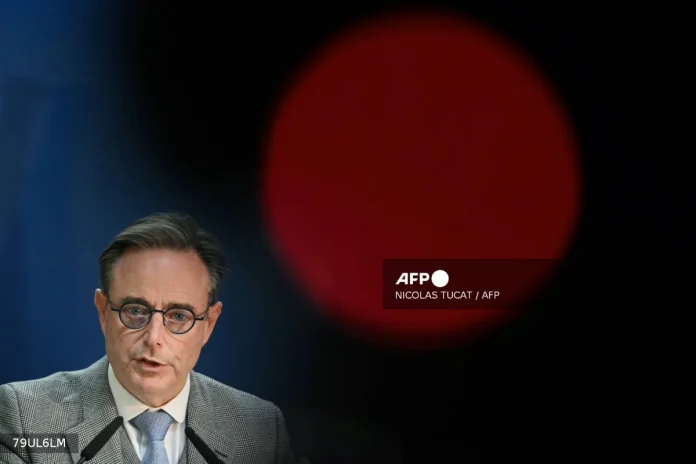Belgium’s Prime Minister says EU plan to use frozen Russian assets for Ukraine could derail peace talks, citing concerns over legal framework and collateral damage.
BRUSSELS: Belgian Prime Minister Bart De Wever said the European Union’s plan to use frozen Russian state assets to fund Ukraine could endanger the chances for a potential peace deal to end the nearly four-year war.
“Hastily moving forward on the proposed reparations loan scheme would have, as a collateral damage, that we as EU are effectively preventing reaching an eventual peace deal,” De Wever said in a letter to European Commission President Ursula von der Leyen, seen by Reuters.
The Financial Times first reported on the letter late on Thursday.
ALSO READ: NATO chief commends Trump’s renewed push for Ukraine peace
Under a plan put forward by von der Leyen, the frozen Russian central bank assets in Europe would be lent to Ukraine for Kyiv to use for defence and regular budget needs.
Belgium’s support for the plan is crucial as the assets the EU hopes to use are held by Belgian financial institution Euroclear.
“The proposed reparations loan scheme is in my view fundamentally wrong,” De Wever said, adding that historically, during a war, immobilised assets had never been put to use.
“Such assets have been the object of decisions during after-war settlements, usually in the context of war reparations by the losing party.”
EU leaders tried at a summit last month to agree on a plan to use 140 billion euros ($162 billion) in frozen Russian sovereign assets in Europe as a loan for Kyiv, but failed to secure Belgium’s backing.
The European Commission did not respond to a request for comment outside regular business hours.
The European Commission, the EU’s executive body, hopes to address Belgium’s concerns in a draft legal proposal which it will present this week on using the frozen sovereign assets to support Kyiv in 2026 and 2027, EU officials have said.
In the letter, De Wever said Belgium had not seen “any proposed legal language by the commission”.
Apart from the 185 billion euros immobilised in Belgium, an estimated 25 billion euros of Russian assets is frozen in EU banks elsewhere, mainly in France and Luxembourg.
Belgium has previously said other countries that have Russian assets, including Canada, Japan, Britain and the U.S. – all of which are members of the Group of Seven wealthy nations – should also be included in the scheme.
($1 = 0.8624 euros) – Reuters








